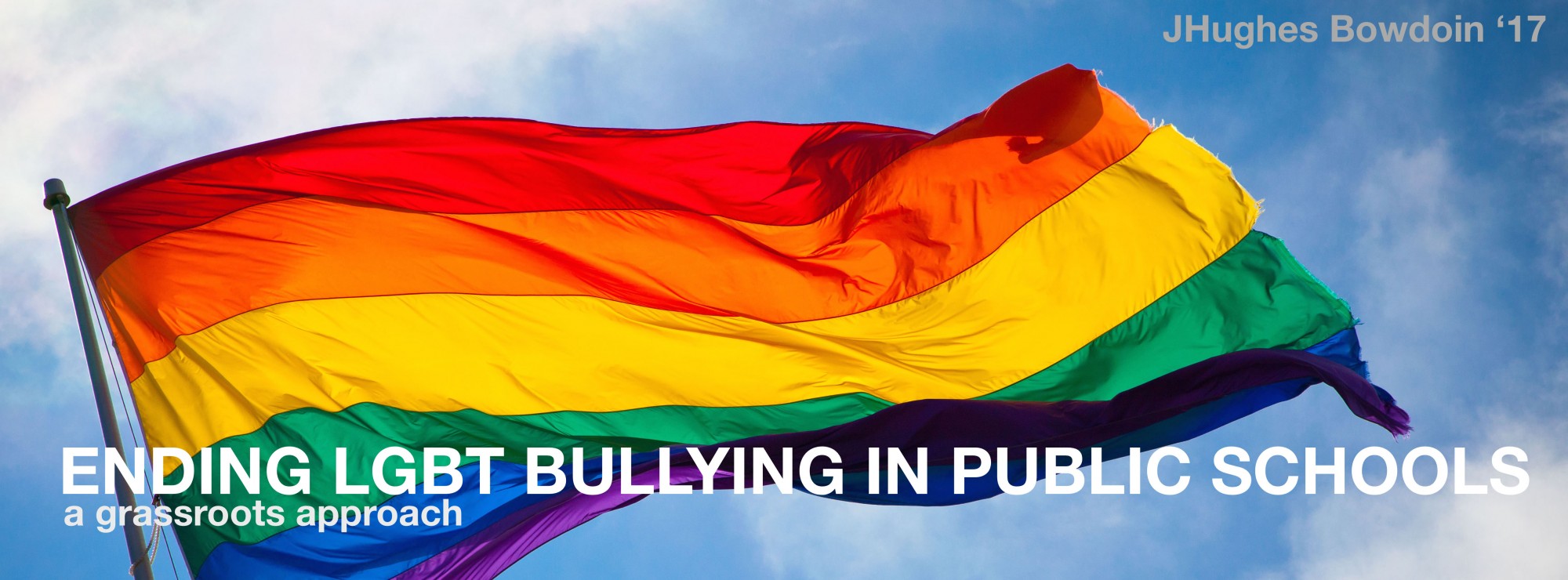When I set out to cover LGBT issues in schools, I knew that I would focus myself on the largest threat that faces the community – bullying. Any LGBT person can tell you that they had some sort of negative experience in school, and so it’s reasonable to think that it is something all LGBT people can relate to. In many ways it is, but in many more ways LGBT people can be so disconnected from the true reality – they’re not experiencing issues at school, they’re facing issues throughout their entire life.
Before I read a stack of peer-reviewed articles, from which I would eventually choose two to present, I was convinced that I would understand, appreciate, and be able to comprehend the issues that the LGBT community faces at school, and why.
I could not have been more wrong.
Yes, I was aware that LGBT students have higher rates of depression, chemical dependence, and even disease. That wasn’t a surprise. I knew that LGBT students hear their educators express homophobic views in the classroom, or at very least do little to conquer that speech were it to be brought in by someone else. I was even aware of the pandemic that seems to be LGBT youth homelessness. What I didn’t know, was how much of a long-lasting effect there would be on LGBT students.
From the growing development of marriage equality across the country, to expanded opportunities for LGBT families, and the It Gets Better effort across social media, it is reasonable to say that many LGBT youth believe that the effects of bullying are temporary, and that once school is finished one can move on with life. Unfortunately studies show that that isn’t always the case, and that some students will suffer forever from impaired non cognitive skill development, or from the mental toil living on the streets brings, or even worse…
Bullying against LGBT youth clearly is a crisis issue, that needs to be eradicated as soon as possible, before more students fall ill from its effects. As we have seen, however, that isn’t always easily. While some efforts, such as GSAs or Spirit Days seem to shed light on the issue, we have seen that isn’t always the case, and that the solution to the problem may lie in society at-large.
And thats a scary thought.
Previous experience has shown us that changing society’s viewpoint on something is problematic at best. Even when the issue is no longer part of daily discourse, it can always resurface bringing its ill-effects once more. Grassroots organizing is an amazing tool at the disposal of communities, but can it really change society as a whole?
Unfortunately I don’t know the answer to that, and while I have studied the efforts that are taking place right now across the country, I’m not convinced that the right method has yet been discovered. It seems as if there is one of two approaches taken. Either the goal is to simply shed light on the plight of the LGBT youth, and expect people to care, or the goal is to force people to care (more specifically bullies) “just because”.
Unfortunately the latter is something that I just don’t agree with. While I do appreciate the respect of others, I don’t want them to feel like they have to subscribe to something in which they don’t believe. Does that mean that bullying is justified? Of course not. Does that mean that the heteronormativism that fuels our nation’s schools is acceptable? Nope. But does it mean that I feel everyone should be ok with LGBT people? I don’t believe so. I think that everyone is entitled to believe in what they feel, and if that includes discomfort around LGBT people, I feel they are completely entitled. I can’t ask someone to give up their beliefs just because I want mine to be heard, even if one group is a suffering minority.
I think grassroots activism against LGBT bullying has gotten off to a great start. There are many amazing projects in education, prevention, intervention, and more. When combined, a multi-pronged response achieves a great deal. While I would love to believe that this will end LGBT bullying, I simply don’t believe it’s the case. With some refining, additional information, and a stronger, more unified voice, I think that it is possible that one day LGBT bullying will end in our schools, and I have every confidence that grassroots activism has the possibility to make that happen.
